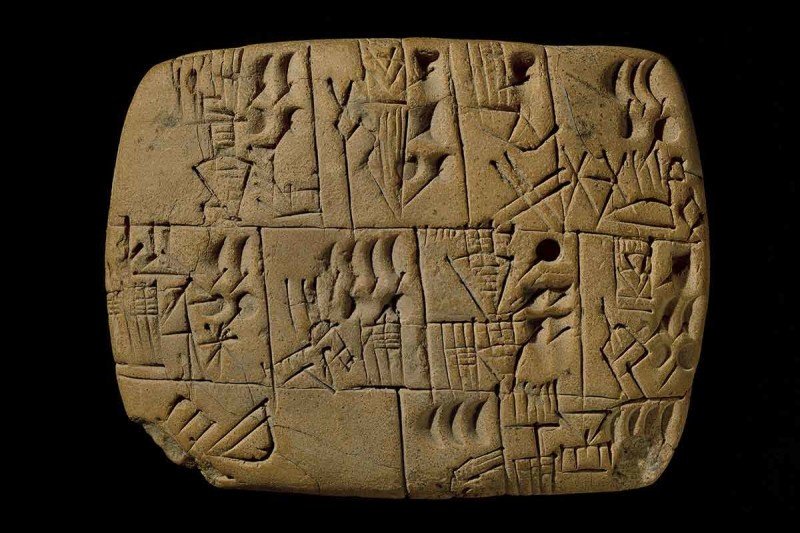A. Sutherland - AncientPages.com - A roughly 5,000-year-old cuneiform stone tablet, in possession of the British Museum in London shows how workers were paid their daily rations in liquid gold.
We have previously seen that the oldest evidence of beer was found on a Sumerian tablet in Mesopotamia.
The drink was apparently so popular that ancient Sumerian workers were paid for their labor in beer and this practice was widely known in ancient world.

A 5,000-year-old cuneiform tablet from the ancient Mesopotamian city of Uruk depicts the distribution of beer to workers as part of their daily rations.
The tablet made around 3100 to 3000 BC. , excavated from Uruk , an ancient city of Sumer and later Babylonia, situated east of the present bed of the Euphrates river, depicts a human head eating from a bowl, meaning ‘ration,' and a conical vessel, meaning ‘beer. There are undoubtedly several reasons why beer was so popular in Mesopotamia. The drink was was safer and tasted better than water.
The Sumerian workers were not the only one who received payment in form of beer. Beer was also of central importance to ancient Egyptian society. Beer was the staple drink of ancient Egyptian workers and craftsmen while wine was for rich people.
See also:
Walls Of Uruk Built By Sumerian King Gilgamesh 4,500 Years Ago
Oldest Evidence Of Beer Was Found On A Sumerian Tablet In Mesopotamia
In ancient Egypt, workers often received wages were often paid in beer and other supplies and the workmen living in the workers village at Giza received beer three times a day as part of their rations. A daily ration could be as much as four to five liters beer.
There are also records of poet and the “Father of English literature” Geoffrey Chaucher receiving a yearly salary of 252 gallons of wine from Richard II.
Receiving wages in form of alcohol has happened on several occasions throughout history, and the trend is still practiced by some modern companies.
Ancient Egyptians also valued beer and used it not only to get drunk, but as medicine and payment. Beer was of great importance in the ancient Egyptian society and its existence gave women an opportunity to earn extra money.
Wages were often paid in beer and workers living in the workers village at Giza received beer three times a day as part of their rations. Archaeologists excavating in Egypt have discovered that payment through beer was very common in various parts of the country.
Written by – A. Sutherland - AncientPages.com Senior Staff Writer
Copyright © AncientPages.com All rights reserved. This material may not be published, broadcast, rewritten or redistributed in whole or part without the express written permission of AncientPages.com






